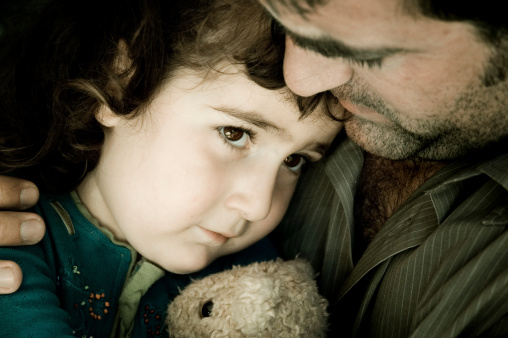 Sometimes your teenage children think they know everything. Do they know that if they saved the $6 they spend each day on a super antioxidant smoothie (or caramel macchiato), in 8 years they could buy a 4-door sedan in soul red or titanium flash (1)? Below are 3 lessons you should teach them about the long-term financial impact of decisions that they will soon be making for themselves.
Lesson #1: Over time, compound interest can make a little bit of savings grow to a very big amount
One of the regrets many of us has, is that we did not start saving soon enough. The idea of compound interest is something that your kids will understand by the time they are in middle school. There are numerous online calculators you can use to show them how deciding to save their money and forego that daily splurge can turn into better investments (like a new car).
Lesson #2: College is a very expensive but financially important decision
As your high schooler starts to contemplate where they want to go to college, don’t leave them out of the financing discussion. Even parents who expect to cover the entire cost of college need to make their child understand that it is a significant investment in their future, and not a nonstop party. Let them know that by completing college, they will likely earn $1 – $3 million more over their lifetime than their classmates who didn’t (2).
Lesson #3: Credit cards are a tool and not a new source of money
Credit card debt is rampant among people of all ages, but studies have shown that outstanding balances ramp up quickly after college. Before, during and after college, make sure your child understands that credit cards are not free money. Talk to them about using credit cards only to the extent that the balance can be paid off each month. Revisit Lesson #1 and show them how fast the balance on a 20% credit card can grow out of control.
The best way to drive these lessons home is to set a good example. Demonstrate good use of credit by paying off your credit cards monthly. Develop a budget and then communicate how sticking to it serves larger financial goals. It’s very likely that you have made some big financial mistakes in your life. Wouldn’t it make sense to share what you have learned so they don’t make them too?
(1) Assuming $6/day, saved for 8 years, earning 6% after fees, the total is $22,403. This exceeds the base MSRP of a 185 horsepower 2016 Mazda 6 4-door sedan with 6-speed manual transmission in Titanium Flash Mica ($21,330). The same model in Soul Red Metallic is $21,630.
(2) The Economic Value of College Majors 2015, Georgetown University Center on Education and the Workforce.
Sometimes your teenage children think they know everything. Do they know that if they saved the $6 they spend each day on a super antioxidant smoothie (or caramel macchiato), in 8 years they could buy a 4-door sedan in soul red or titanium flash (1)? Below are 3 lessons you should teach them about the long-term financial impact of decisions that they will soon be making for themselves.
Lesson #1: Over time, compound interest can make a little bit of savings grow to a very big amount
One of the regrets many of us has, is that we did not start saving soon enough. The idea of compound interest is something that your kids will understand by the time they are in middle school. There are numerous online calculators you can use to show them how deciding to save their money and forego that daily splurge can turn into better investments (like a new car).
Lesson #2: College is a very expensive but financially important decision
As your high schooler starts to contemplate where they want to go to college, don’t leave them out of the financing discussion. Even parents who expect to cover the entire cost of college need to make their child understand that it is a significant investment in their future, and not a nonstop party. Let them know that by completing college, they will likely earn $1 – $3 million more over their lifetime than their classmates who didn’t (2).
Lesson #3: Credit cards are a tool and not a new source of money
Credit card debt is rampant among people of all ages, but studies have shown that outstanding balances ramp up quickly after college. Before, during and after college, make sure your child understands that credit cards are not free money. Talk to them about using credit cards only to the extent that the balance can be paid off each month. Revisit Lesson #1 and show them how fast the balance on a 20% credit card can grow out of control.
The best way to drive these lessons home is to set a good example. Demonstrate good use of credit by paying off your credit cards monthly. Develop a budget and then communicate how sticking to it serves larger financial goals. It’s very likely that you have made some big financial mistakes in your life. Wouldn’t it make sense to share what you have learned so they don’t make them too?
(1) Assuming $6/day, saved for 8 years, earning 6% after fees, the total is $22,403. This exceeds the base MSRP of a 185 horsepower 2016 Mazda 6 4-door sedan with 6-speed manual transmission in Titanium Flash Mica ($21,330). The same model in Soul Red Metallic is $21,630.
(2) The Economic Value of College Majors 2015, Georgetown University Center on Education and the Workforce.  Sometimes your teenage children think they know everything. Do they know that if they saved the $6 they spend each day on a super antioxidant smoothie (or caramel macchiato), in 8 years they could buy a 4-door sedan in soul red or titanium flash (1)? Below are 3 lessons you should teach them about the long-term financial impact of decisions that they will soon be making for themselves.
Lesson #1: Over time, compound interest can make a little bit of savings grow to a very big amount
One of the regrets many of us has, is that we did not start saving soon enough. The idea of compound interest is something that your kids will understand by the time they are in middle school. There are numerous online calculators you can use to show them how deciding to save their money and forego that daily splurge can turn into better investments (like a new car).
Lesson #2: College is a very expensive but financially important decision
As your high schooler starts to contemplate where they want to go to college, don’t leave them out of the financing discussion. Even parents who expect to cover the entire cost of college need to make their child understand that it is a significant investment in their future, and not a nonstop party. Let them know that by completing college, they will likely earn $1 – $3 million more over their lifetime than their classmates who didn’t (2).
Lesson #3: Credit cards are a tool and not a new source of money
Credit card debt is rampant among people of all ages, but studies have shown that outstanding balances ramp up quickly after college. Before, during and after college, make sure your child understands that credit cards are not free money. Talk to them about using credit cards only to the extent that the balance can be paid off each month. Revisit Lesson #1 and show them how fast the balance on a 20% credit card can grow out of control.
The best way to drive these lessons home is to set a good example. Demonstrate good use of credit by paying off your credit cards monthly. Develop a budget and then communicate how sticking to it serves larger financial goals. It’s very likely that you have made some big financial mistakes in your life. Wouldn’t it make sense to share what you have learned so they don’t make them too?
(1) Assuming $6/day, saved for 8 years, earning 6% after fees, the total is $22,403. This exceeds the base MSRP of a 185 horsepower 2016 Mazda 6 4-door sedan with 6-speed manual transmission in Titanium Flash Mica ($21,330). The same model in Soul Red Metallic is $21,630.
(2) The Economic Value of College Majors 2015, Georgetown University Center on Education and the Workforce.
Sometimes your teenage children think they know everything. Do they know that if they saved the $6 they spend each day on a super antioxidant smoothie (or caramel macchiato), in 8 years they could buy a 4-door sedan in soul red or titanium flash (1)? Below are 3 lessons you should teach them about the long-term financial impact of decisions that they will soon be making for themselves.
Lesson #1: Over time, compound interest can make a little bit of savings grow to a very big amount
One of the regrets many of us has, is that we did not start saving soon enough. The idea of compound interest is something that your kids will understand by the time they are in middle school. There are numerous online calculators you can use to show them how deciding to save their money and forego that daily splurge can turn into better investments (like a new car).
Lesson #2: College is a very expensive but financially important decision
As your high schooler starts to contemplate where they want to go to college, don’t leave them out of the financing discussion. Even parents who expect to cover the entire cost of college need to make their child understand that it is a significant investment in their future, and not a nonstop party. Let them know that by completing college, they will likely earn $1 – $3 million more over their lifetime than their classmates who didn’t (2).
Lesson #3: Credit cards are a tool and not a new source of money
Credit card debt is rampant among people of all ages, but studies have shown that outstanding balances ramp up quickly after college. Before, during and after college, make sure your child understands that credit cards are not free money. Talk to them about using credit cards only to the extent that the balance can be paid off each month. Revisit Lesson #1 and show them how fast the balance on a 20% credit card can grow out of control.
The best way to drive these lessons home is to set a good example. Demonstrate good use of credit by paying off your credit cards monthly. Develop a budget and then communicate how sticking to it serves larger financial goals. It’s very likely that you have made some big financial mistakes in your life. Wouldn’t it make sense to share what you have learned so they don’t make them too?
(1) Assuming $6/day, saved for 8 years, earning 6% after fees, the total is $22,403. This exceeds the base MSRP of a 185 horsepower 2016 Mazda 6 4-door sedan with 6-speed manual transmission in Titanium Flash Mica ($21,330). The same model in Soul Red Metallic is $21,630.
(2) The Economic Value of College Majors 2015, Georgetown University Center on Education and the Workforce. 





 Divorce is a challenging life experience for children, and parents worry what the impact will be on their children’s lives. Based on my work with families of divorce, I have three specific suggestions for how parents can empathetically support their children during this difficult and often painful transition:
1. Never put your children in the middle of parental conflict.
This cannot be overstated: exposure to parental conflict is toxic for children. Heated arguments around children, even if parents believe their children can’t overhear, negatively charge the environment in the home, and kids will feel it. Critical or disrespectful words about a parent said by the other parent in the hearing range of their children make kids confused, sad and often angry. I have heard many stories from tearful children about trying to get parents to stop arguing and belittling each other. You would never feed your children poisonous food; do not make them absorb poisonous words.
2. Remember that children deserve the best safe parenting they can get from both parents.
Be civil, treat each other with courtesy and remind your children that both parents love them. Despite your hurt, anger or betrayal as a spouse, remember that your child’s relationship with and feelings about your soon-to-be-ex are separate from yours. Resist the urge to try to get your child on your side, or to alienate your child from the other parent. Of course real safety concerns must be addressed and may result in protective measures like supervised parental access. But it is not fair to try to negatively manipulate your child’s feelings about the other parent just because you are angry.
3. Listen to your children and stay attuned to their needs.
The emotional and time demands of a divorce can understandably absorb parents’ time and attention at the exact time their children may need extra reassurance. Because regular routines are usually reassuring to children, try to designate time to spend with your children doing normal family activities. Let them know whatever feelings they have about the divorce are okay, and you will always love and support them. Check in with them to see how they’re doing, but read their cues if they tell you you’re asking too often.
Divorce is a challenging life experience for children, and parents worry what the impact will be on their children’s lives. Based on my work with families of divorce, I have three specific suggestions for how parents can empathetically support their children during this difficult and often painful transition:
1. Never put your children in the middle of parental conflict.
This cannot be overstated: exposure to parental conflict is toxic for children. Heated arguments around children, even if parents believe their children can’t overhear, negatively charge the environment in the home, and kids will feel it. Critical or disrespectful words about a parent said by the other parent in the hearing range of their children make kids confused, sad and often angry. I have heard many stories from tearful children about trying to get parents to stop arguing and belittling each other. You would never feed your children poisonous food; do not make them absorb poisonous words.
2. Remember that children deserve the best safe parenting they can get from both parents.
Be civil, treat each other with courtesy and remind your children that both parents love them. Despite your hurt, anger or betrayal as a spouse, remember that your child’s relationship with and feelings about your soon-to-be-ex are separate from yours. Resist the urge to try to get your child on your side, or to alienate your child from the other parent. Of course real safety concerns must be addressed and may result in protective measures like supervised parental access. But it is not fair to try to negatively manipulate your child’s feelings about the other parent just because you are angry.
3. Listen to your children and stay attuned to their needs.
The emotional and time demands of a divorce can understandably absorb parents’ time and attention at the exact time their children may need extra reassurance. Because regular routines are usually reassuring to children, try to designate time to spend with your children doing normal family activities. Let them know whatever feelings they have about the divorce are okay, and you will always love and support them. Check in with them to see how they’re doing, but read their cues if they tell you you’re asking too often.  Co-parenting can be challenging even in the most amicable divorces, but there are some personalities disorders that make co-parenting downright difficult. Among these include, but are not limited to: bipolar disorder, borderline personality disorder, and narcissistic personality disorder. We are going to focus on narcissists in this post. Narcissists have a magnified sense of self-importance and lack they empathy for others. Narcissists insist on getting their way regardless of how it may affect others, even their own children. They may make promises to the children in order to gain compliance from the child, then refuse to honor the promises. They can be arrogant, self-centered, manipulative, demanding, and vain. As co-parents, these individuals often feel superior to their former spouse. It is challenging to reason with a narcissist, or attempt to try to get them to see the situation from someone else’s point of view, which makes co-parenting together a great feat.
Sound familiar? Most importantly you must know that your ex’s personality disorder does not need to define your divorce. One of the best things that you can do in this situation is file a parenting plan with the courts. A parenting plan will outline anything from daily routines to holiday schedules. When dealing with a narcissist the more information you have laid out in writing, the more black and white it becomes. A parenting plan with help to maintain firm boundaries with your ex.
When co-parenting with a narcissist you may need to keep your expectations low. You cannot expect the narcissist to tackle parenting with the same parental instincts that you have. What seems like second nature to you, may never cross a narcissist’s radar. Because a narcissist places no value on their children’s feelings, there will likely be emotional messes to clean up. Get your children (and you) into therapy and make it a regular and “normal” part of their lives.
Take comfort in knowing that you are not alone. There are support groups out there, both online and in person, that are aimed specifically towards coping with a narcissistic ex. Divorce is never easy on children. Coping with a narcissistic parent makes a stressful situation even more difficult, but not impossible. Educate yourself on co-parenting through these challenging times, and also commit to self-care to provide some reprieve.
Co-parenting can be challenging even in the most amicable divorces, but there are some personalities disorders that make co-parenting downright difficult. Among these include, but are not limited to: bipolar disorder, borderline personality disorder, and narcissistic personality disorder. We are going to focus on narcissists in this post. Narcissists have a magnified sense of self-importance and lack they empathy for others. Narcissists insist on getting their way regardless of how it may affect others, even their own children. They may make promises to the children in order to gain compliance from the child, then refuse to honor the promises. They can be arrogant, self-centered, manipulative, demanding, and vain. As co-parents, these individuals often feel superior to their former spouse. It is challenging to reason with a narcissist, or attempt to try to get them to see the situation from someone else’s point of view, which makes co-parenting together a great feat.
Sound familiar? Most importantly you must know that your ex’s personality disorder does not need to define your divorce. One of the best things that you can do in this situation is file a parenting plan with the courts. A parenting plan will outline anything from daily routines to holiday schedules. When dealing with a narcissist the more information you have laid out in writing, the more black and white it becomes. A parenting plan with help to maintain firm boundaries with your ex.
When co-parenting with a narcissist you may need to keep your expectations low. You cannot expect the narcissist to tackle parenting with the same parental instincts that you have. What seems like second nature to you, may never cross a narcissist’s radar. Because a narcissist places no value on their children’s feelings, there will likely be emotional messes to clean up. Get your children (and you) into therapy and make it a regular and “normal” part of their lives.
Take comfort in knowing that you are not alone. There are support groups out there, both online and in person, that are aimed specifically towards coping with a narcissistic ex. Divorce is never easy on children. Coping with a narcissistic parent makes a stressful situation even more difficult, but not impossible. Educate yourself on co-parenting through these challenging times, and also commit to self-care to provide some reprieve. 
